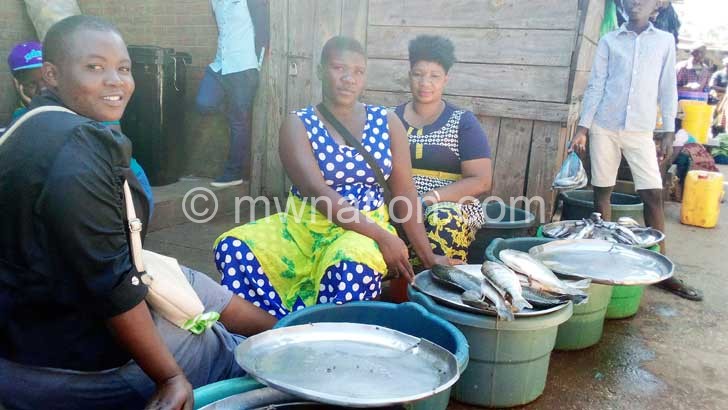Sex for fish in Karonga
The livelihood of many Malawians along the shoreline Lake Malawi hinge on fishing.
Some are fishers while others are fish vendors.
In Karonga District along the Northern shoreline of the country’s largest lake, many women sell fish to feed their families.
They often depart their homes in the evening or early in the morning for the lake to buy fish coming ashore.
However, some of them, including married ones, are caught up in sexual webs with fishers to gain favours from them, especially access to falling catches arriving on shore.
In the scramble for dwindling catches, the women desparate to buy quality fish at lower prices run the risk of unintended pregnancies and sexually transmitted infections, including HIV.
Robert Silungwe, co-ordinator for Tithetse Nkhaza project at Foundation for Community Support Services (Focus), says the culture of sex for fish is getting rampant in the district.
He finds it unfortunate that most fishers do not seem to know that providing sex for fish is violence against women and girls.

He states: “When male fishers demand sex as a condition for women or girls to access the commodity, this is sexual exploitation.
“Helpless and economically disadvantaged women exchange their bodies for fish against their will. This appears normal to the perpetrators, but the victims experience long-impacting trauma just because they want to earn a living.”
Silungwe says the practice also fuels HIV infections in fishing villages, but it is rarely taken seriously by human rights and gender activists.
Linda Kaonga, 37, sells fish in Karonga.
She says many women are involved in fish business because it does not require huge capital.
“As catches in Lake Malawi are dropping, it is not easy for a woman to buy quality if you don’t know someone.
“This is the reason some of them sleep with fishers. But not everyone is involved in such practices. It takes one’s morals,” she says.
Kaonga says she has never slept with a fisher since she started fish vending in 2012 to lift herself out of poverty.
“My main goal is to feed my family. Unlike in the past when my husband was struggling to fend for us, I provide basic needs for my family from fish business. On a good day, I make K10 000 to K20 000 depending on the fish I order,” she narrates.
Kaonga urges idle women to venture into small businesses to avoid depending everything on their husband.
“Sometimes, a woman suffers violent clashes with her husband because he is struggling to give them all what they want. But if she was doing business, fighting emanating from financial demands would be minimised,” she says.
Richard Mwangonde a 24-year-old fisherman could not deny the sex for fish culture on the northern tip of Malawi.
She says such incidents depend on the behaviour of the men the women and girls are dealing with.
“Some of us just sell fish to anyone with cash, but, of course, some fishermen take advantage of their catch to sexually exploit women. Some women too seduce fishers so they can get more fish for less or no pay at all to make more profits,” he says.
Recently, Family Planning Association of Malawi (Fpam) expressed concern with risky sexual conduct putting lives of the youth and women in the lakeshore district.
Fpam district coordinator Michael Gundaphiri says the sexual webs will result in a surge in sexually transmitted infections, unintended pregnancies and child marriages if not tackled.
He says many young boys who grow up fishing indulge in unprotected sex, alcoholism and smoking in the name of having fun.
He laments: “It is worrisome to see how young boys and girls are socialising along the lake. Young people are exposed to risky behaviour, including excessive beer drinking and smoking that leads them to have unprotected sex on the beach.
“We need to do something to rescue these young men and women to have a generation we can trust.”





